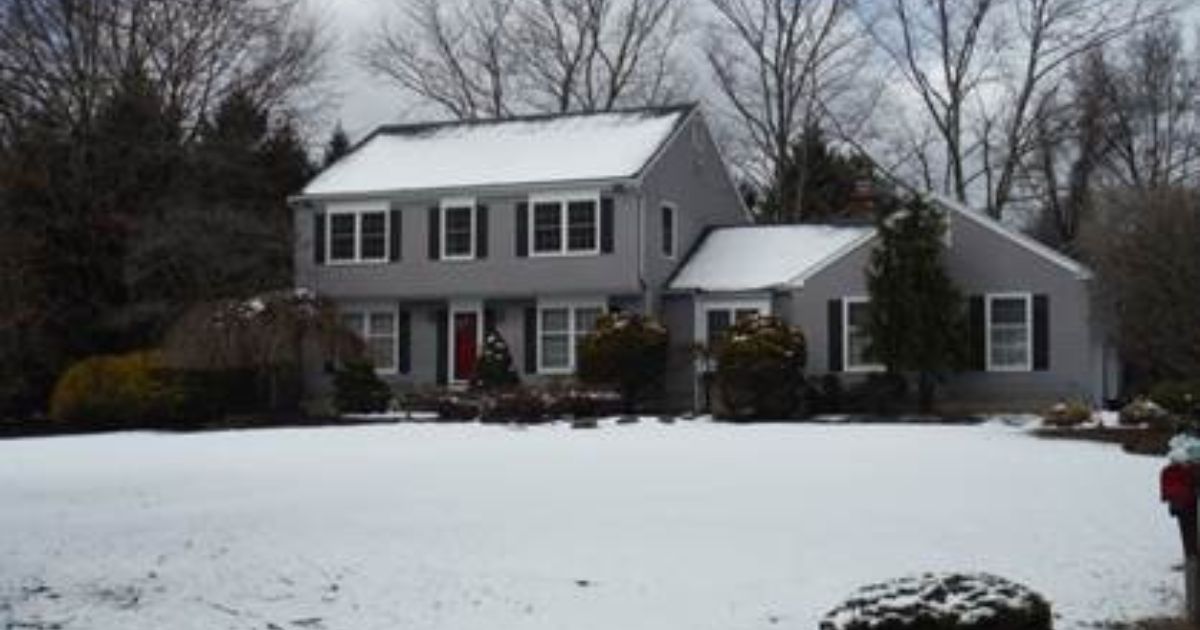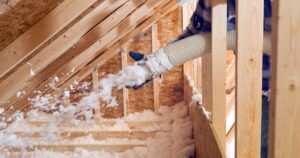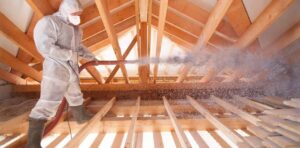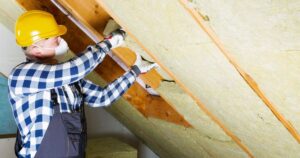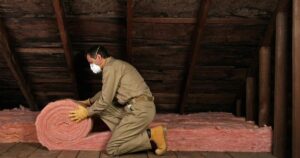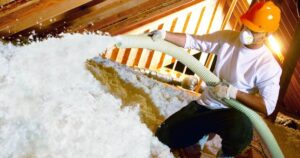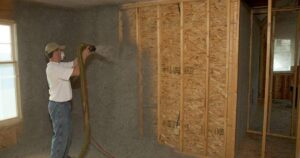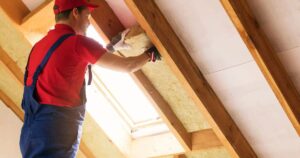As winter’s chill approaches, many homeowners wonder if their attic insulation is up to the task of keeping their homes warm and comfortable. In this comprehensive article, we will explore the role of attic insulation in maintaining a cozy and energy-efficient home during the winter months.
We’ll delve into the importance of proper insulation, its impact on energy savings, and discuss the advantages and disadvantages of different insulation materials. We’ll take a look at what competitors in the market offer, so you can make an informed decision regarding your attic insulation needs.
The Importance of Attic Insulation
- Energy Efficiency
Proper attic insulation is a critical component of energy efficiency in your home. During the winter, insulation helps to prevent the escape of warm air from your living spaces into the attic. This barrier ensures that your heating system doesn’t have to work overtime to maintain a comfortable indoor temperature, leading to significant energy savings and lower utility bills.
- Temperature Regulation
Attic insulation acts as a temperature regulator. It keeps the cold air outside from seeping into your home and maintains a consistent indoor temperature. This means you won’t have to constantly adjust your thermostat to combat drafts and cold spots, contributing to a more comfortable living environment.
- Preventing Moisture Issues
In addition to temperature control, proper insulation helps prevent moisture buildup in your attic. When warm air meets cold surfaces, condensation can occur, leading to issues like mold and rot. Attic insulation minimizes this risk, ensuring the longevity of your home’s structure.
The Impact on Energy Saving
Lower Heating Costs
One of the primary advantages of attic insulation in winter is the substantial reduction in heating costs. When your home retains heat efficiently, you’ll use less energy to keep it warm. This not only saves money but also reduces your carbon footprint.
Extended HVAC System Lifespan
Efficient insulation not only saves on heating costs but also prolongs the life of your HVAC system. Your heating equipment won’t need to run as frequently or as long, resulting in less wear and tear. This leads to fewer repairs and a longer-lasting system.
Advantages and Disadvantages of Attic Insulation Materials
Fiberglass Insulation
Advantages
- Cost-effective
- Excellent thermal resistance
- Fire-resistant
Disadvantages
- Prone to settling and compression over time
- May require professional installation for optimal results
Cellulose Insulation
Advantages
- Made from recycled materials
- Efficient at reducing air infiltration
- Eco-friendly
Disadvantages
- Can settle and lose effectiveness over time
- Susceptible to mold and pest infestations if not properly installed
Spray Foam Insulation
Advantages
- Superior insulating properties
- Expands to fill gaps and cracks
- Long-lasting
Disadvantages
- Higher initial cost
- May release harmful chemicals during installation
Considerations for Attic Insulation
R-Value
The R-value of insulation measures its thermal resistance. Higher R-values indicate better insulating properties. It’s essential to choose insulation with an appropriate R-value for your climate zone. Colder climates require higher R-values to effectively insulate your home during winter.
DIY vs. Professional Installation
While some homeowners opt for DIY insulation installation to save costs, it’s often advisable to hire professionals. Improperly installed insulation can lead to gaps and inefficiencies. Professionals ensure that insulation is correctly placed and sealed, maximizing its effectiveness.
Maintenance and Upkeep
Attic insulation, like any other part of your home, requires maintenance. Regular inspections can help identify issues such as mold, pest infestations, or damaged insulation. Addressing these problems promptly can prevent more extensive and costly repairs in the long run.
Government Incentives
Many governments offer incentives for homeowners to improve their home’s energy efficiency. Check if there are any tax credits or rebates available in your area for adding or upgrading your attic insulation. These incentives can significantly offset the initial investment.
Eco-Friendly Insulation Options
Reflective Insulation
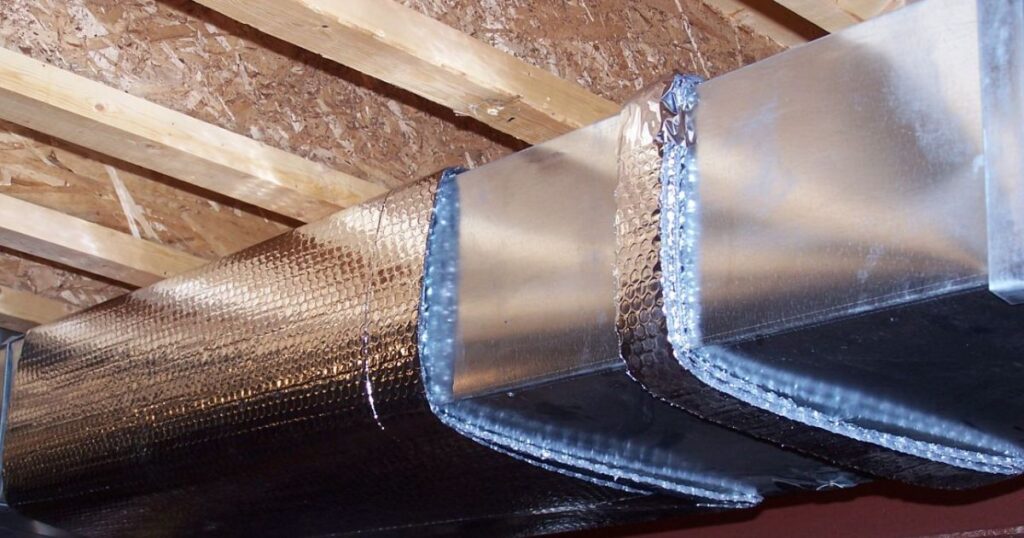
Reflective insulation is an eco-friendly option that uses reflective materials to bounce radiant heat away from your home. It’s especially effective in sunny climates where heat gain is a concern. This type of insulation can help regulate your home’s temperature year-round.
Recycled Insulation
Recycled insulation is an excellent choice for environmentally conscious homeowners. It’s often made from recycled materials, reducing the environmental impact. Some options, like denim insulation, are not only eco-friendly but also effective in retaining heat.
A Word of Caution
Asbestos Concerns
If your home was built before the 1980s, it’s important to be aware of the potential presence of asbestos insulation. Asbestos can pose severe health risks if disturbed. If you suspect asbestos in your attic, seek professional asbestos abatement services before installing new insulation.
FAQs
Will insulating my attic make my house warmer?
The short answer is yes, insulating the attic is an effective way to keep your home cooler during the summer months.
Does insulation work in winter?
Good insulation makes your home warmer in the winter and cooler in the summer.
What happens if you don’t insulate attic?
When your attic isn’t insulated, the heat that escapes through the roof can lead to ice dams during colder seasons.
Conclusion
Attic insulation is undeniably crucial for maintaining a warm and comfortable home during the winter. It plays a pivotal role in energy efficiency, reducing heating costs, and preventing moisture-related issues.
When considering attic insulation, weigh the advantages and disadvantages of different materials and explore the offerings of competitors in the market. Making an informed decision about your attic insulation can lead to a cozier and more cost-effective winter season.

